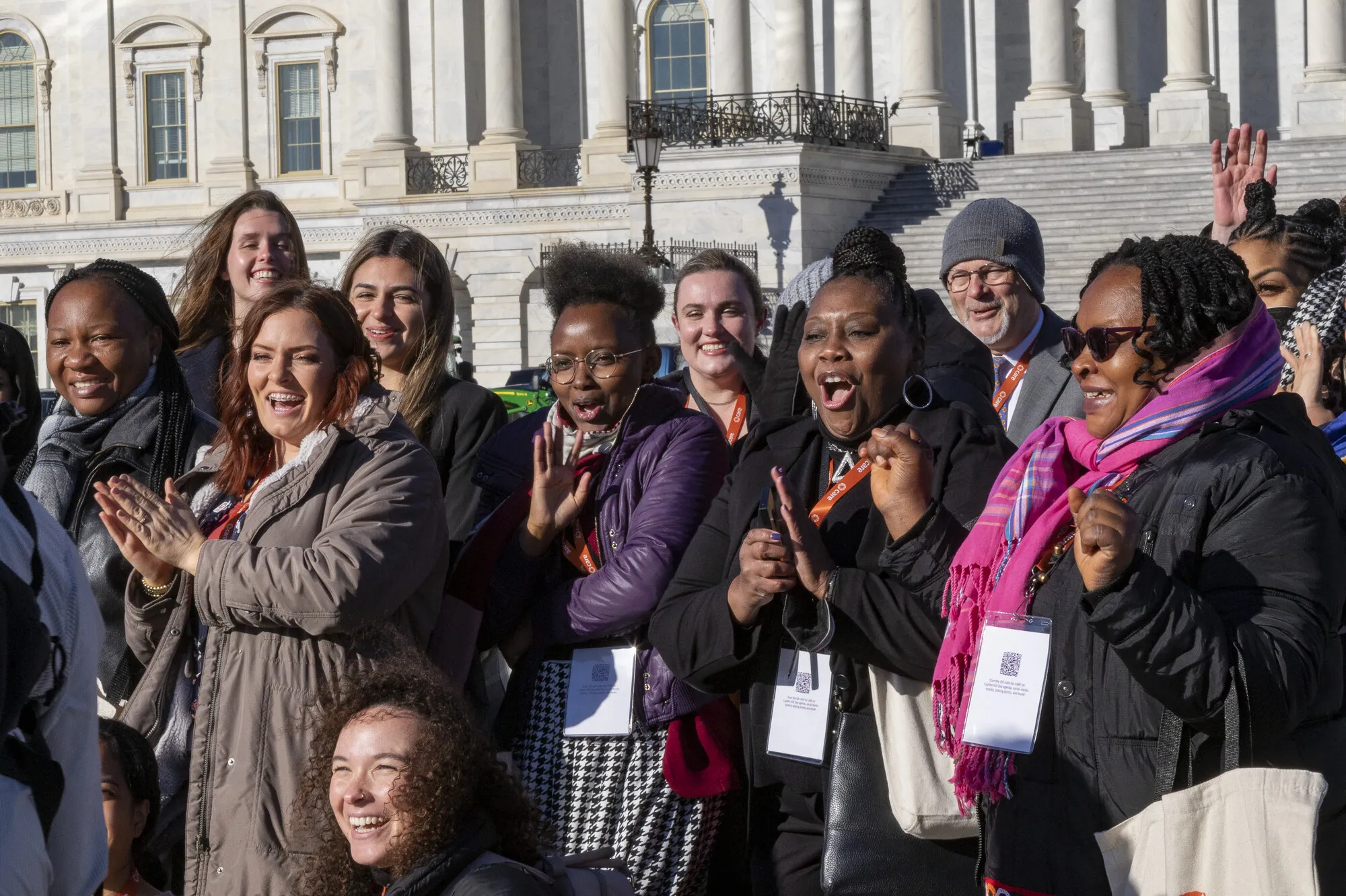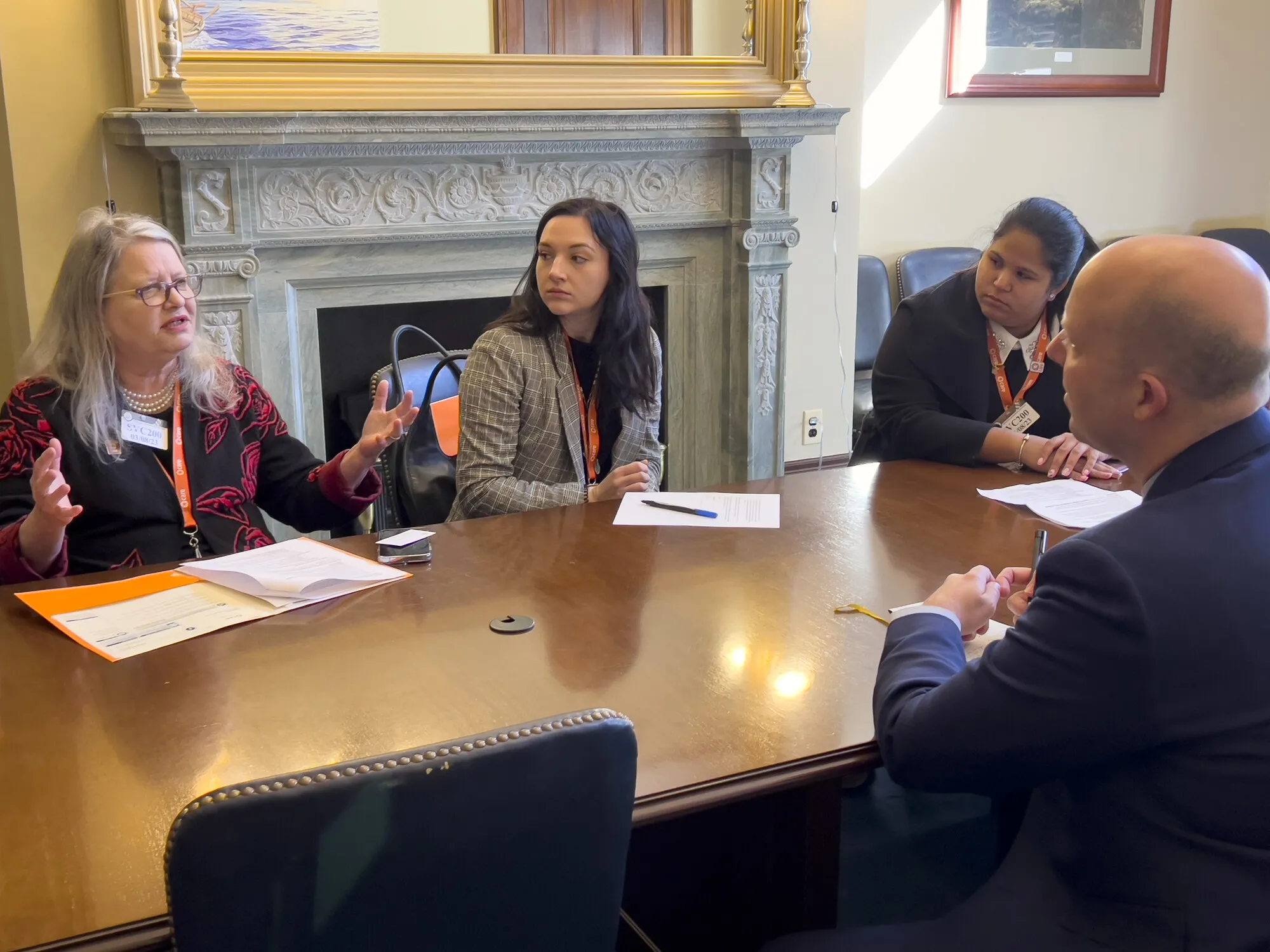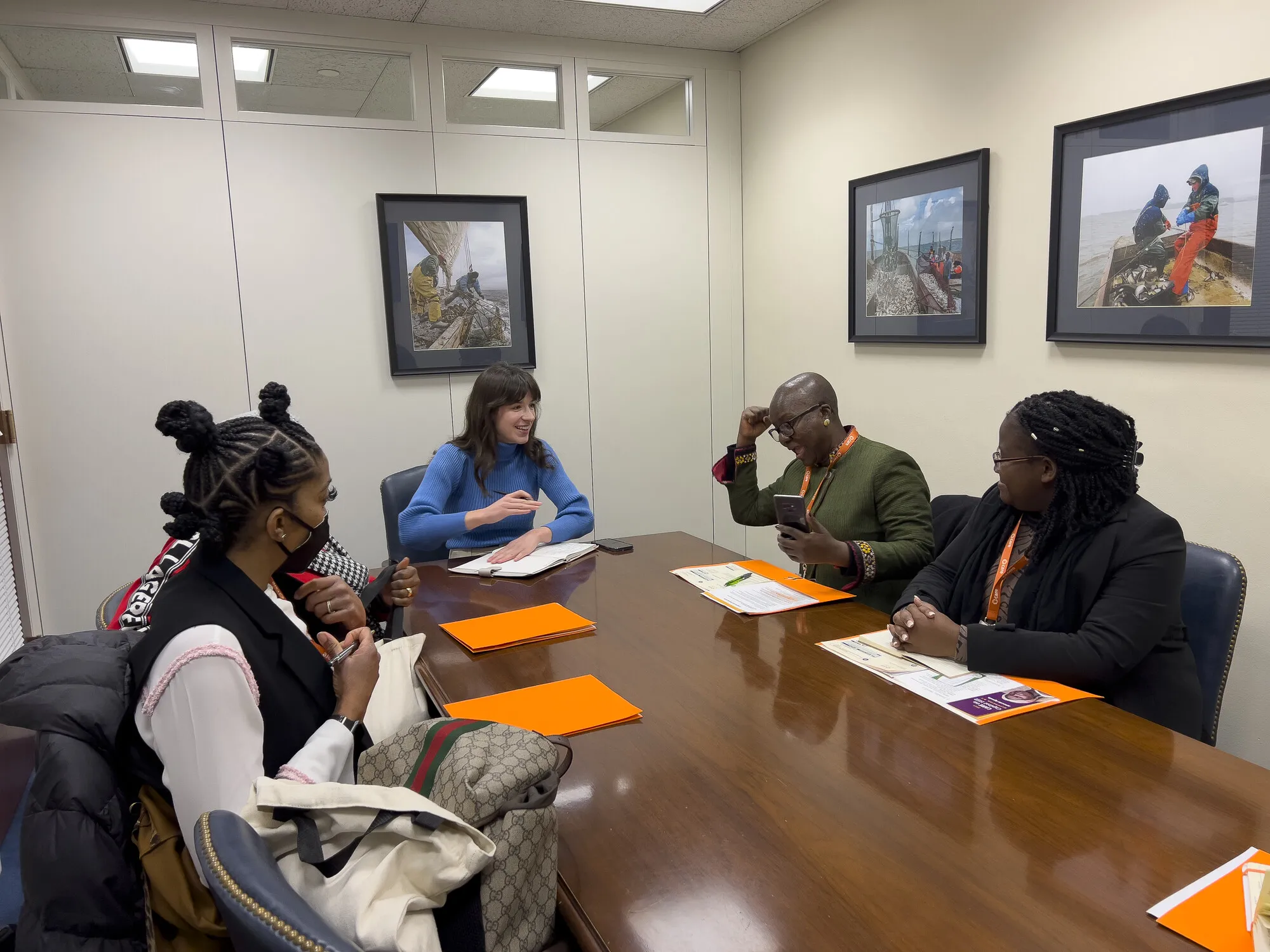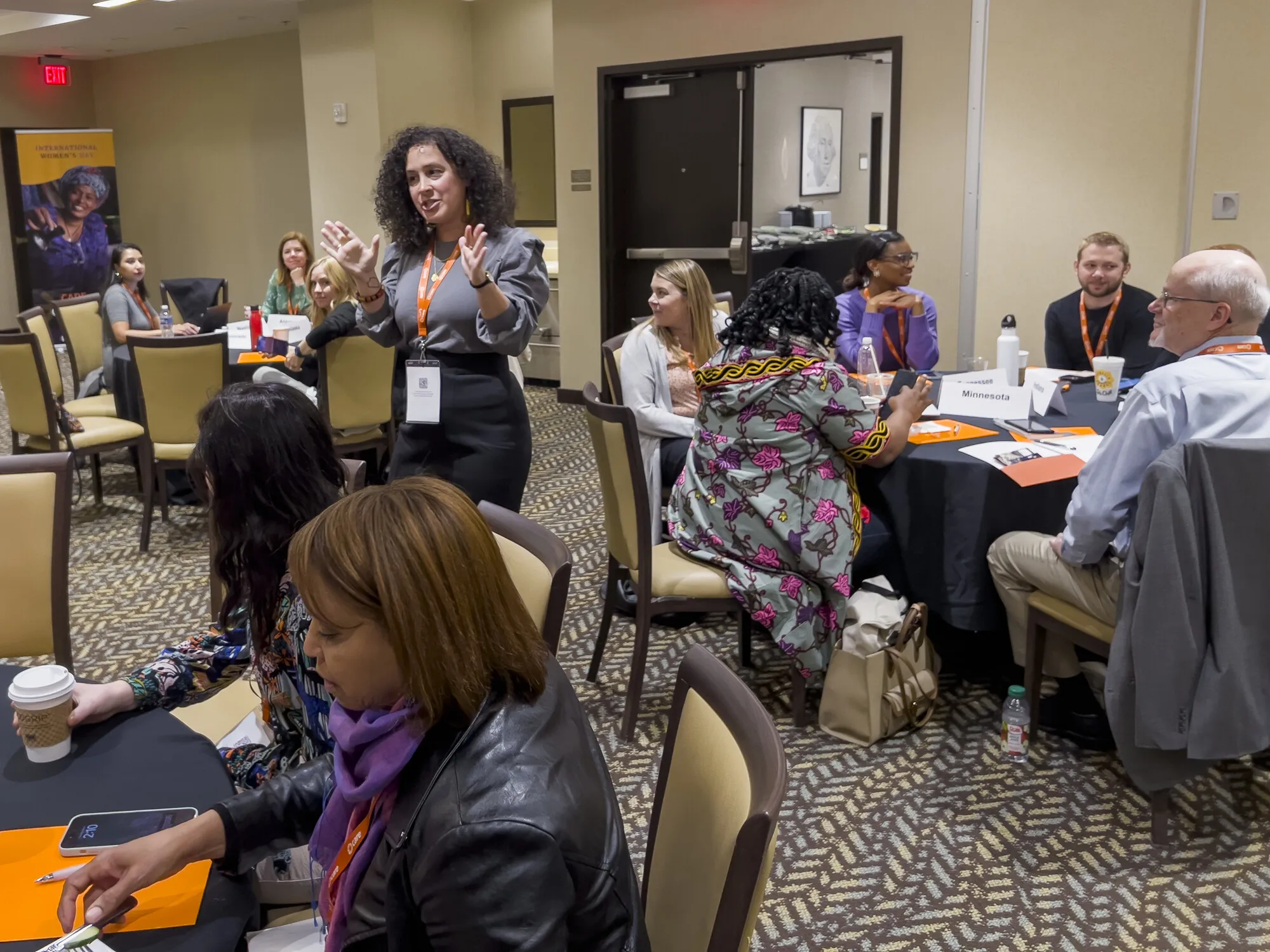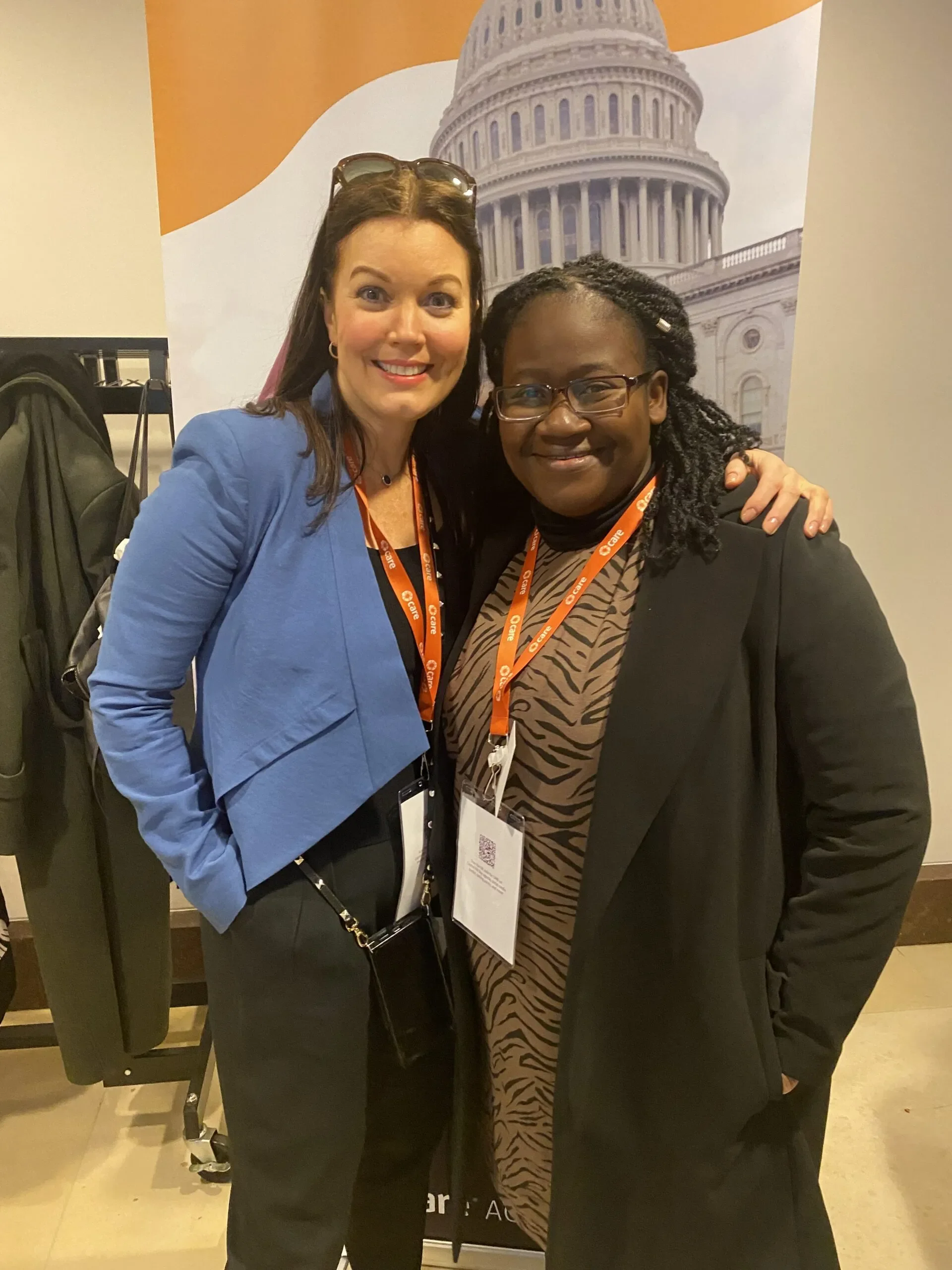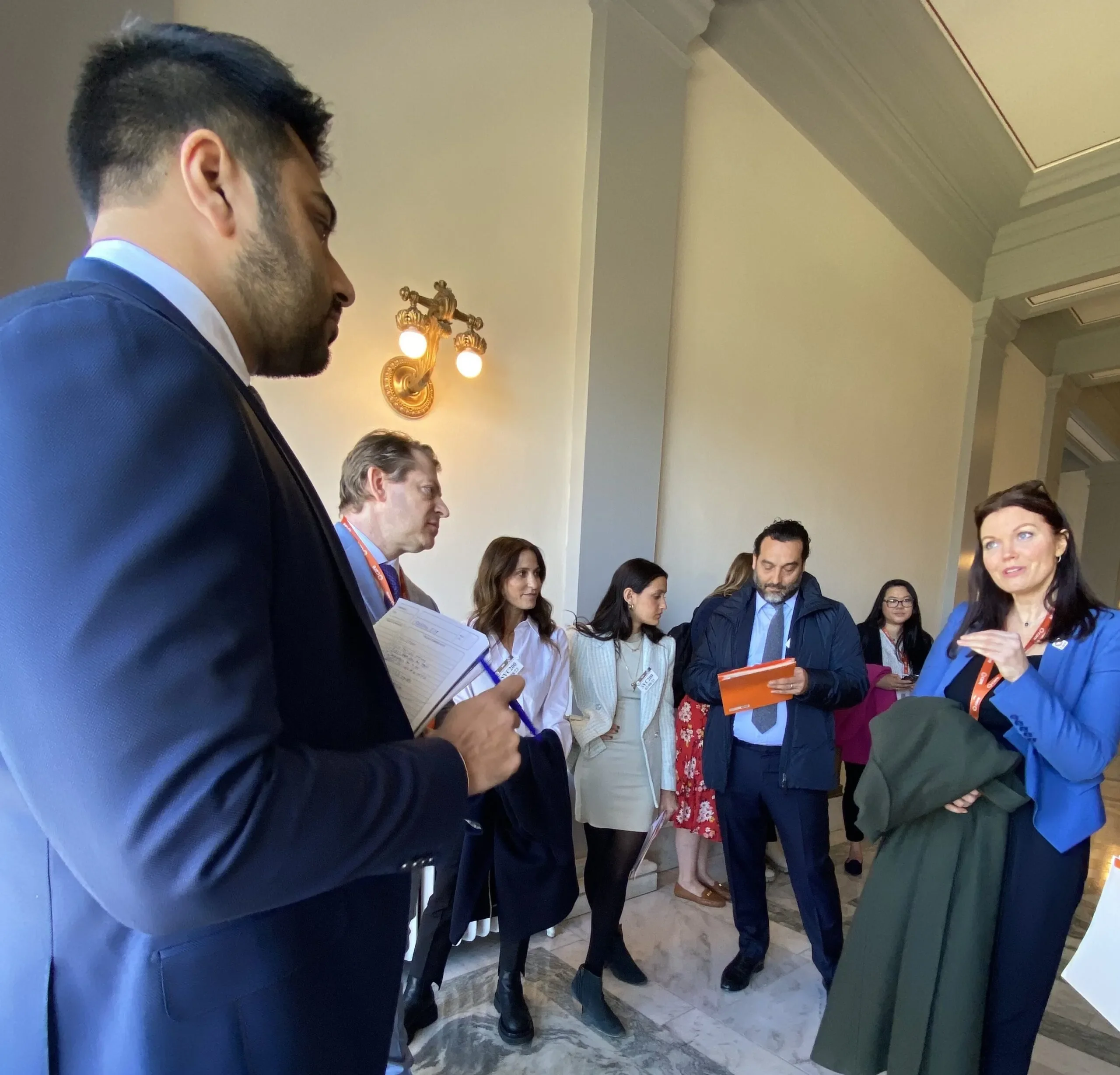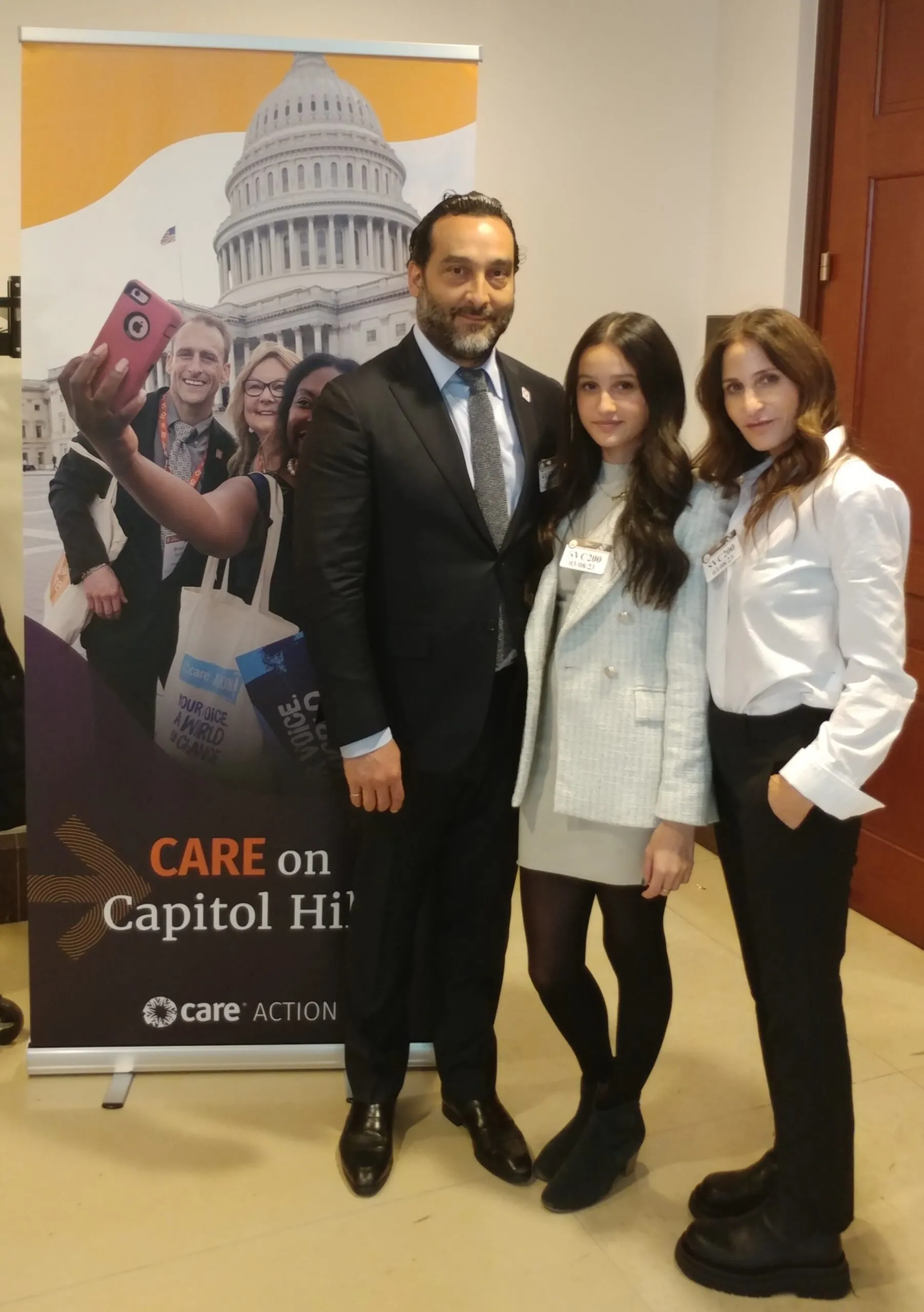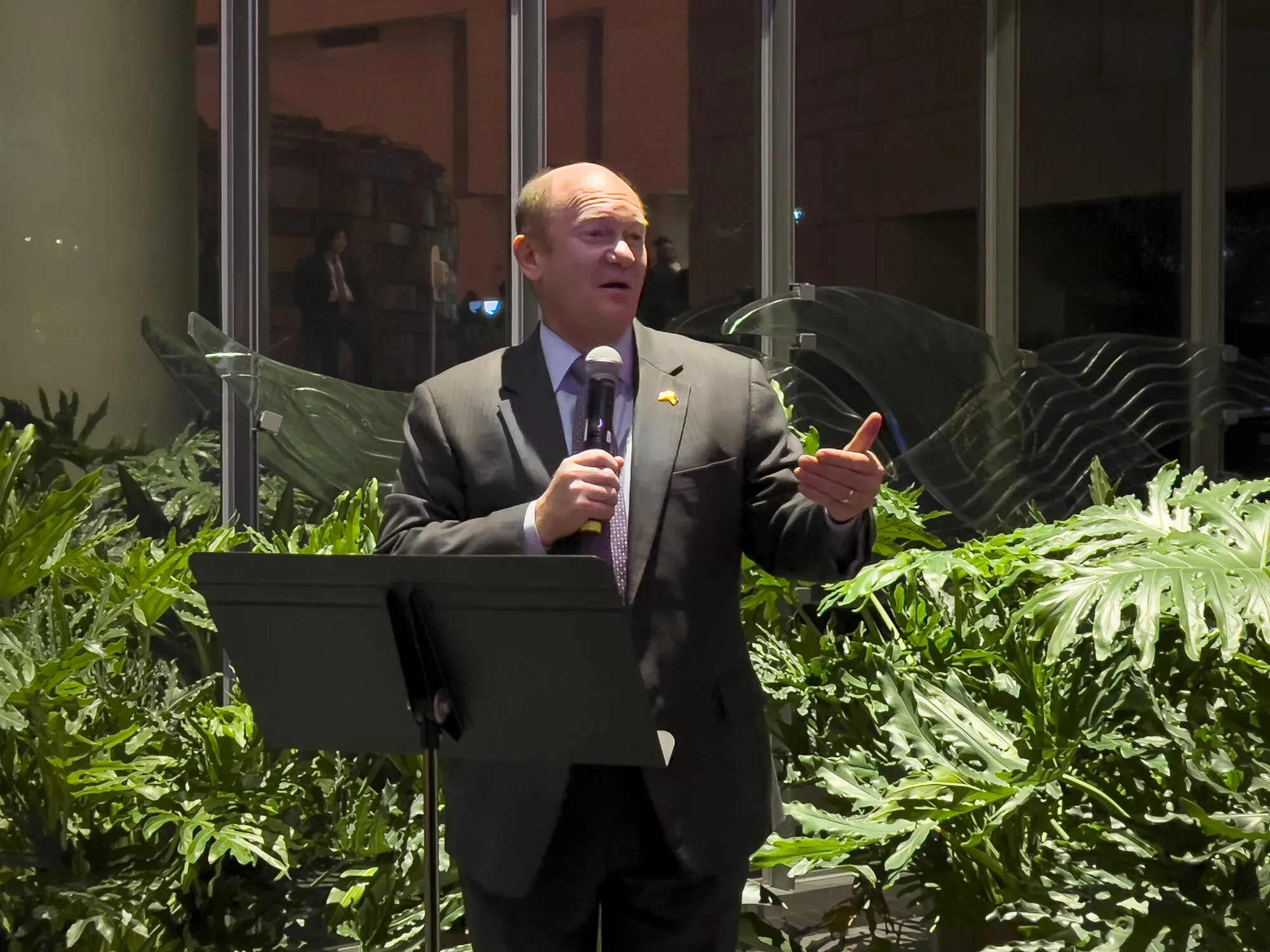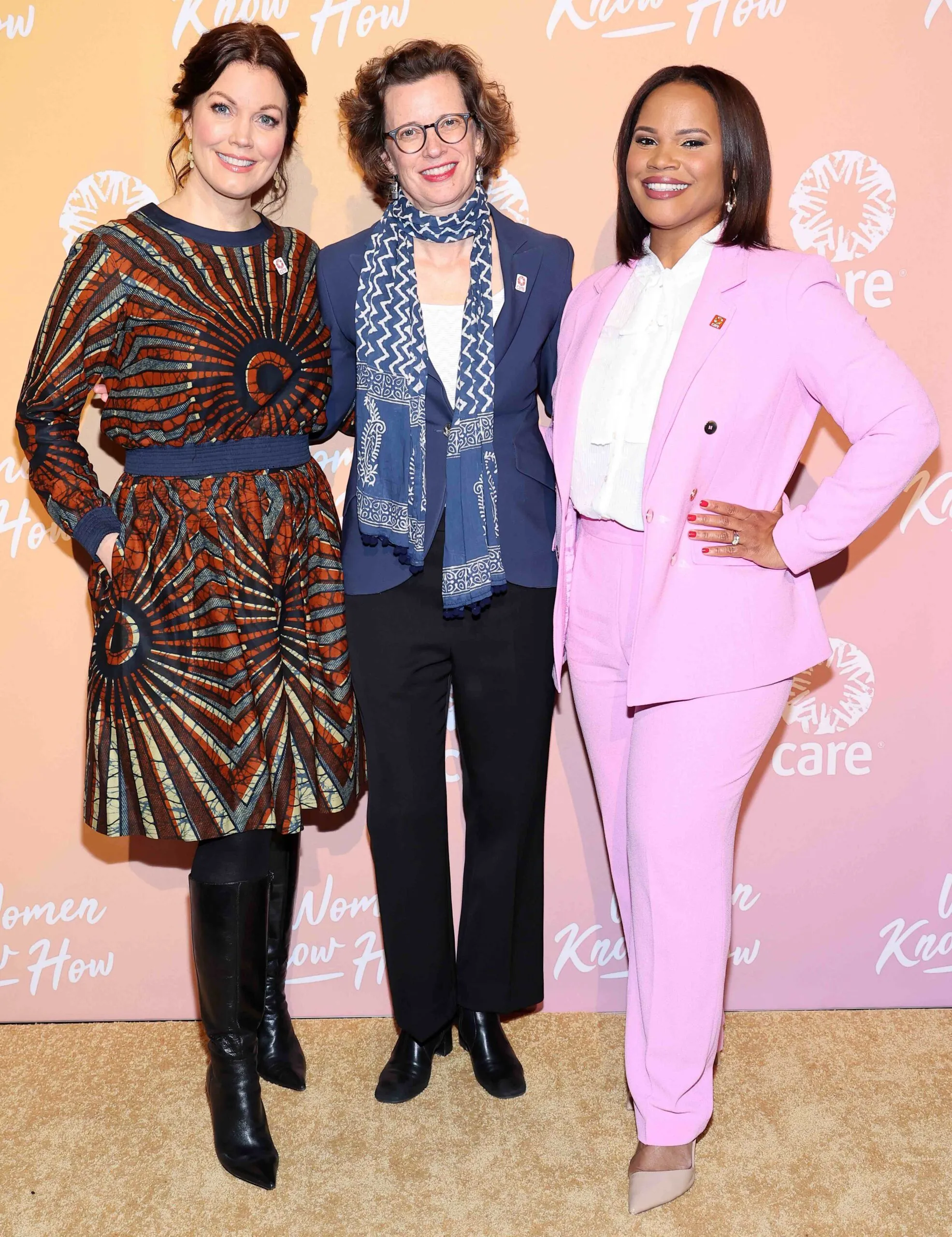Showtime!
The raising of voices begins bright and early the next morning, with 56 Congressional meetings on Capitol Hill that start after breakfast and continue all day long, until close to dinner.
Oregonian Rayanne Sautter takes the lead in Sen. Ron Wyden’s (D-Ore.) office, addressing staffers Claire Kaliban and Lavanya Sridharan.
“We truly believe that women are powerhouses of change in their communities,” Rayanne says. “I personally got involved with CARE after seeing people in different countries who didn’t have voices of their own,” explaining that an encounter in Mozambique with an eight-year-old survivor of gender-based violence made a deep impression on her. Claudine Tsongo also speaks up to say that a mere $100 given to a woman in the DRC can help her start a small-scale business, feeding her family and paying for their educations.
At Sen. Kirsten Gillibrand’s (D-N.Y.) office, advocates hold a standing hallway meeting with staffer Sachin Mathur, since rooms are hard to find as the appropriations process kicks into gear. There, the team gets schooled on inside-the-Beltway lingo, with Mathur informing the group that the budget section they’re discussing is called “SFOPS” for short, or the State, Foreign Operations, and Related Programs budget. (To clumsily adapt a Ben Franklin quote, in DC, three things are certain: death, taxes, and acronyms.)
Each advocate has a role to play in their Congressional meetings, like New York advocate Nick Hetherington who mentions the tiny size of SFOPS funding (roughly 1% of the $6.8 trillion Federal budget goes to foreign assistance funding), and Bellamy Young highlights the importance of new funding for global health workers, 70% of whom are women. “They are the ‘human tech’ that gets all this [research and development] into the people and helps communities survive and thrive,” she emphasizes.
It’s a two-way exchange, with Mathur highlighting the senator’s commitment to global health – for example, sponsoring the One Health Security Act, which would create an interagency council to provide early warning about the next pandemic.
Meetings with receptive legislators are important simply because it reminds them that there are people in their districts who truly care about these relatively small parts of the Federal budget.

